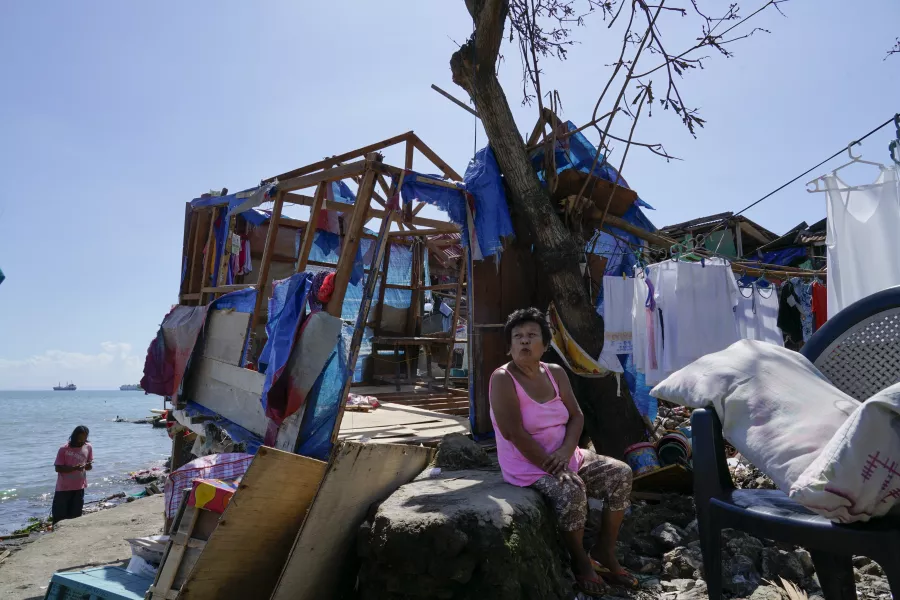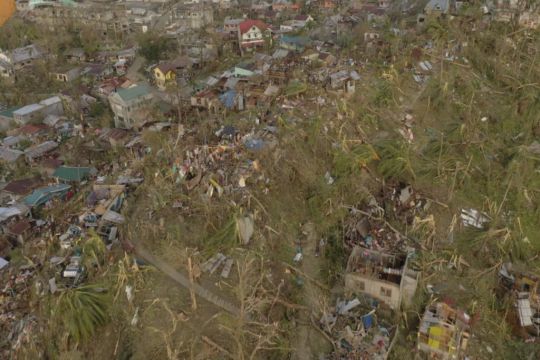The death toll in the strongest typhoon to hit the Philippines this year has surpassed 140 after an island province reported at least 72 fatalities.
Governor Arthur Yap, of Bohol province, reported the number of deaths in more than half of the towns that managed to contact him in the wake of the devastation wrought by Typhoon Rai.
It brings the overall death toll in the country from the typhoon to at least 146.
Mr Yap also said 10 others were missing and 13 injured, and suggested the fatalities may still considerably increase with only 33 out of 48 mayors able to report back to him due to downed communications.
Officials were trying to confirm a sizable number of deaths caused by landslides and extensive flooding elsewhere.

In statements posted on Facebook, Mr Yap ordered mayors in his province of more than 1.2 million people to invoke their emergency powers to secure food packs for large numbers of people along with drinking water, which he said was an urgent problem since water stations were down during power outage.
After joining a military aerial survey of typhoon-ravaged towns, Mr Yap said “it is very clear that the damage sustained by Bohol is great and all-encompassing”.
The government said about 780,000 people were affected, including more than 300,000 residents who had to evacuate their homes.
At least 64 other typhoon deaths were reported by the disaster-response agency and the national police. Officials on Dinagat Islands, one of the south-eastern provinces first pounded by the typhoon, separately reported 10 deaths just from a few towns, bringing the overall fatalities so far to 146.
President Rodrigo Duterte flew to the region on Saturday and promised two billion pesos (£30 million) in new aid. Aides said the president will visit Bohol on Sunday.
At its strongest, the typhoon packed sustained winds of 121 miles per hour and gusts of up to 168mph, one of the most powerful in recent years to hit the disaster-prone archipelago, which lies between the Pacific Ocean and the South China Sea.
At least 227 cities and towns lost electricity, which has since been restored in only 21 areas, officials said, adding three regional airports were damaged, including two that remain closed.







